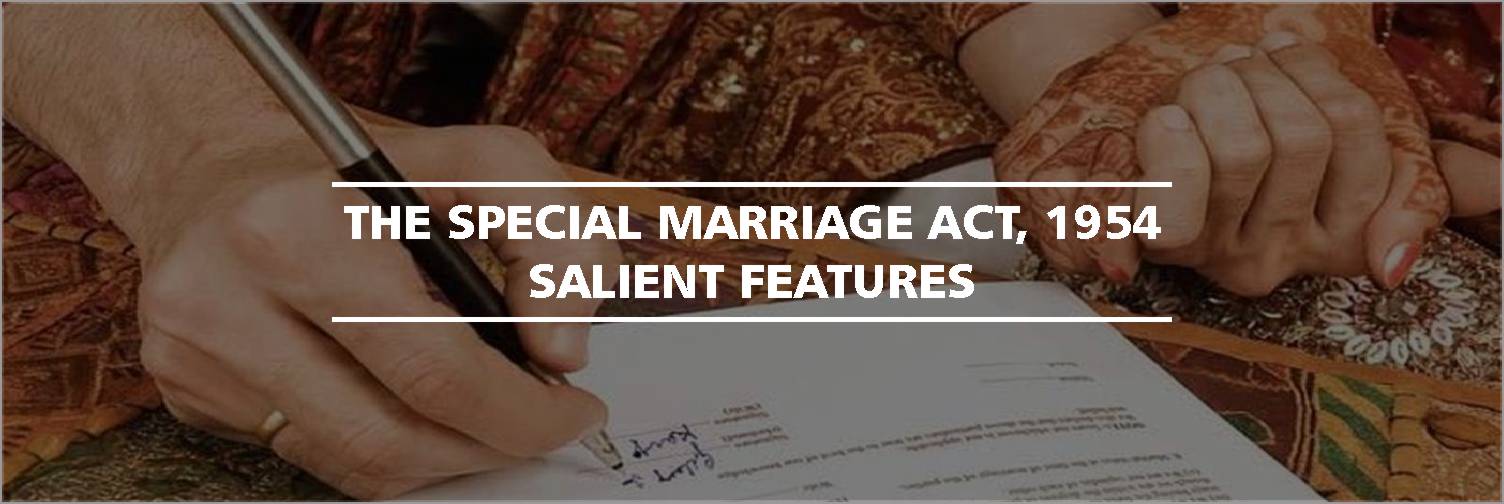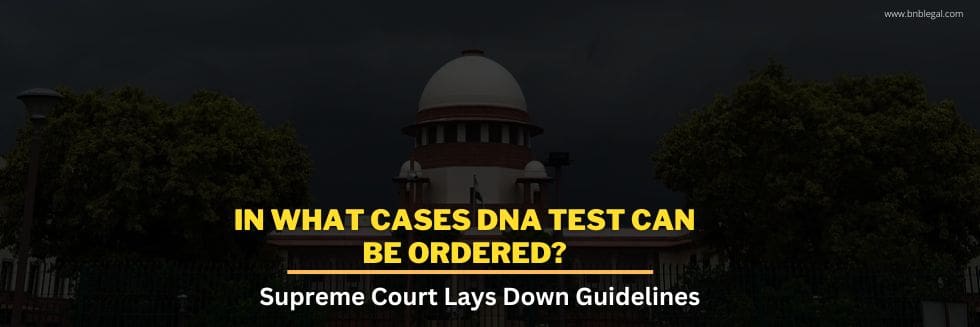India follows a rigid structure of the caste system, and inter-religion marriage is still considered a taboo in the country. The Parliament introduced the Special Marriage Act, 1954 which allows for a special form of marriage for the people of India to marry irrespective of their religion.
1. Conditions for a valid marriage: Section 4
- Neither party has a spouse living:
- neither party-
(i) is incapable of giving a valid consent to it in consequence of unsoundness of mind; or
(ii) though capable of giving valid consent, has been suffering from mental disorder of such a kind or to such an extent as to be unfit for marriage and the procreation of children; or
(iii) has been subject to recurrent attacks of insanity or epilepsy;
- the male has completed the age of twenty-one years and the female, the age of eighteen years;
- the parties are not within the degrees of prohibited relationship.
2. Procedure for solemnization and registration of marriage: Section 16
No religious ceremonies are required, and the marriage is solemnized by a Marriage Officer appointed by the Government and the concerned parties to the marriage shall give notice to the Marriage Officer in the prescribed manner. The Marriage Officer shall enter this information in the Register maintained by him of this information and issue a public notice for the filing of the objection. The marriage is to be performed after 30 days of this public notice and before the expiry of two months from issue of notice.
A declaration in the form specified has to be signed by the applicants along with three witnesses. The Marriage Officer shall after being satisfied that all the conditions mentioned in Section 15 of the Act are met with, enter a certificate of the marriage in the Marriage Certificate Book in the Form specified in the Fifth Schedule and the parties to the marriage and three witnesses shall sign such certificate.
3. Void marriages: Section 24
Any marriage solemnized under this Act shall be null and void (and may, on a petition presented by either party to it against the other party, be so declared) by a decree of nullity if any of the conditions for a valid marriage under this Act has not been fulfilled; or the respondent was impotent at the time of the marriage and at the time of the institution of the suit.
4. Voidable marriages: Section 25
A marriage under this Act shall be voidable and may be annulled by a decree of nullity,
i. if the marriage has not been consummated owing to the wilful refusal of the respondent to consummate the marriage;
However, the Court shall not grant a decree unless it is satisfied-
(a) that the petitioner was at the time of the marriage ignorant of the facts alleged;
(b) those proceedings were instituted within a year from the date of the marriage;
(c) the marital intercourse with the consent of the petitioner has not taken place since the discovery by the petitioner of the existence of the grounds a decree
ii. the respondent was at the time of the marriage pregnant by some person other than the petitioner; or the consent of either party to the marriage was obtained by coercion or fraud, as defined in the Indian Contract Act, 1872 (9 of 1872):
however, the Court shall not grant a decree if,-
(a) proceedings have not been instituted within one year after the coercion had ceased or, as the case may be, the fraud had been discovered; or
(b) the petitioner has with his or her free consent lived with the other party to the marriage as husband and wife after the coercion had ceased or as the case may be, the fraud had been discovered.
5.The legitimacy of children: Section 26
Section 26 confers the legitimacy status on the children begotten before the marriage was nullified by passing a decree. But the child from such marriage shall not have any rights in or to the property of any person other than the parents.
6. Grounds for divorce under this Act: Section 27
Parties may belong to different religions when they perform a marriage under this Act, but they will have similar ground for getting a divorce, as mentioned below:
- Adultery.
- Desertion: Respondent has deserted the petitioner for a continuous period of not less than two years.
- Respondent being sentenced to imprisonment for seven years or more for any offence.
- Cruelty
- Respondent has been incurably of unsound mind.
- Respondent has been suffering from venereal disease.
- Respondent has been suffering from an incurable form of leprosy.
- Presumption of death: Respondent not heard of as being alive for more than seven years.
- The respondent-husband has been convicted of crimes such as rape or outraging the modesty of any female.
- The wife may also get a divorce on the ground that there was no resumption of cohabitation for one year or more since the passing of decree or order for maintenance.
Under this Act, the parties cannot file a petition for divorce to the District Court before the expiry of one year has expired from the date of their marriage as registered in the marriage books.
7. Divorce by mutual consent: Section 28
A petition for divorce may be presented to the District Court by both the parties together on the ground that they have been living separately for one year or more, that they have not been able to live together and that they have mutually agreed that the marriage should be dissolved. On the motion of both the parties made not earlier than six months after the date of the presentation of the petition referred to in sub-section (1) and not later than eighteen months after the said date, if the petition is not withdrawn in the meantime, the District Court shall, on being satisfied, after hearing the parties and after making such inquiry as it thinks fit, that a marriage has been solemnized under this Act and that the averments in the petition are true, pass a decree declaring the marriage to be dissolved with effect from the date of the decree.
8. Succession Rights: Section 21
The succession rights to the property of persons married under this Act is governed by the Indian Succession Act.
9. Can the divorced couple remarry?
Yes provided that the marriage has been dissolved and there is no right of appeal available, or there is no petition made for it in the required period, or appeal if presented is dismissed.








